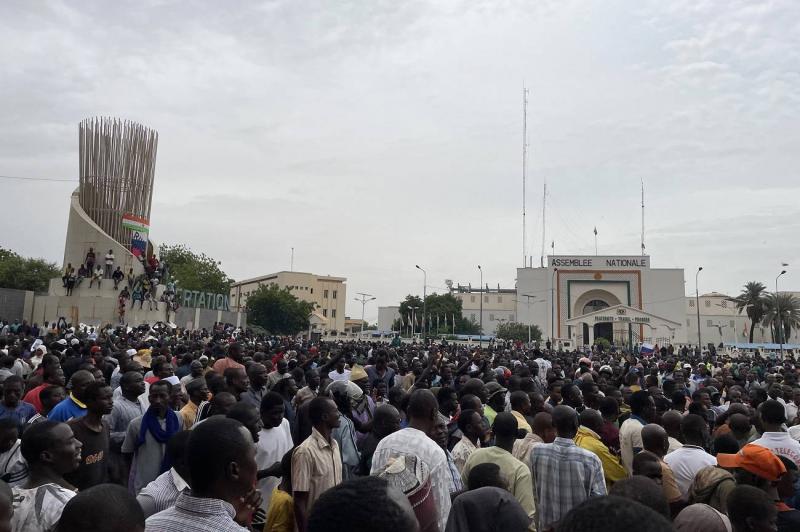During their emergency summit today, Sunday, the leaders of the Economic Community of West African States (ECOWAS) imposed financial sanctions and travel bans on the military leaders of Niger who ousted President Mohamed Bazoum. The leaders also condemned the support of certain countries and military contractors for this coup. Military council spokesperson Amadou Abdrahmane indicated that "the aim of the ECOWAS meeting is to approve a plan of aggression against Niger through imminent military intervention in Niamey in cooperation with non-ECOWAS African countries and some Western states." He added: "We want to remind the Economic Community of West African States or any other adventurer of our steadfast determination to defend our homeland."
The leaders of ECOWAS, comprising 15 members, and the West African Economic and Monetary Union, consisting of eight members, have the authority to suspend Niger's membership in both organizations, exclude the country from the regional central bank and financial market, and close borders.
A statement from the office of the Chadian president, issued yesterday, Saturday, noted that "Chad, the eastern neighbor of Niger and not a member of the regional organizations, has been invited to the ECOWAS summit." Niger is one of the poorest countries in the world, receiving official development assistance estimated at around two billion dollars annually, according to the World Bank. It is also a key security partner for some Western countries, such as France and the United States, which use it as a base for efforts to contain violence by militants in the Sahel region of West and Central Africa.
For the first time, West African leaders may also consider military intervention to restore President Mohamed Bazoum, who was ousted when General Abdrahmane Tiani was declared the new head of state on Friday. Prior to today's summit, military leaders in Niger issued a statement on state television last night warning against any military intervention in their country.




